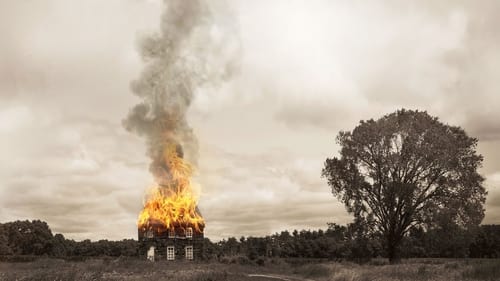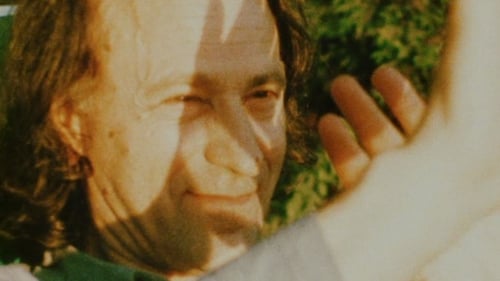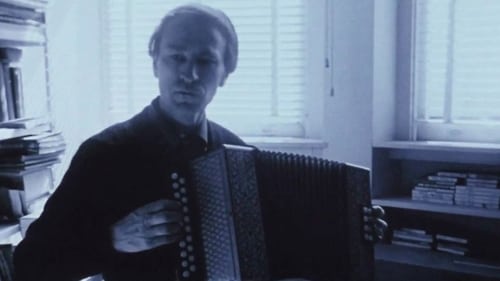Richard Foreman
出生 : 1937-06-10, New York City, New York, USA
略歴
Richard Foreman is an American playwright and avant-garde theater pioneer, founder of the Ontological-Hysteric Theater.

The 29-minute experimental film Christmas on Earth caused a sensation when it first screened in New York City in 1964. Its orgy scenes, double projections and overlapping images shattered artistic conventions and announced a powerful new voice in the city's underground film scene. All the more remarkable, that vision belonged to a teenager, 18-year-old Barbara Rubin. A Zelig of the '60s, she introduced Andy Warhol to the Velvet Underground, Bob Dylan to Kabbalah and bewitched Allen Ginsberg. The same unbridled creativity that inspired her to make films when women simply didn't, saw her breach yet another male domain, Orthodox Judaism, before her mysterious death at 35. Lifelong friend Jonas Mekas saved all her letters, creating a rich archive that filmmaker Chuck Smith carefully sculpts into this fascinating portrait of a nearly forgotten artist. An avante-garde maverick, a rebel in a man's world, Barbara Rubin regains her rightful place in film history.

Still Photographer
Set in postwar America, a man watches his seemingly perfect life fall apart as his daughter's new political affiliation threatens to destroy their family.

Screenplay
Since the late 1960s, the almost annual productions of Richard Foreman’s Ontological-Hysteric Theater have been among New York’s artistic highlights. A legend of the avant-garde theater, Foreman is also a passionate film fan, whose taste ranges from American avant-garde to Manoel de Oliveira. ONCE EVERY DAY marks his first foray into feature filmmaking in 35 years. Highly visual, complexly edited and without a traditional narrative, the film zeroes in on a group of 25 people acting out a series of semi-ritualistic behavior patterns. But their eccentric impulses are aborted in unpredictable ways with each attempt at action or development. According to the director, “The film slowly evolves a time-mosaic of reformatted consciousness.” Longtime admirers of Foreman’s work will see an intriguing adaptation of his unique theatrical style to the cinema. And for everyone else: Welcome to the extraordinary world of Richard Foreman.

Director
Since the late 1960s, the almost annual productions of Richard Foreman’s Ontological-Hysteric Theater have been among New York’s artistic highlights. A legend of the avant-garde theater, Foreman is also a passionate film fan, whose taste ranges from American avant-garde to Manoel de Oliveira. ONCE EVERY DAY marks his first foray into feature filmmaking in 35 years. Highly visual, complexly edited and without a traditional narrative, the film zeroes in on a group of 25 people acting out a series of semi-ritualistic behavior patterns. But their eccentric impulses are aborted in unpredictable ways with each attempt at action or development. According to the director, “The film slowly evolves a time-mosaic of reformatted consciousness.” Longtime admirers of Foreman’s work will see an intriguing adaptation of his unique theatrical style to the cinema. And for everyone else: Welcome to the extraordinary world of Richard Foreman.

Stage Director
An opera by John Zorn and Richard Foreman

Himself
In this entrancing documentary on performance artist, photographer and underground filmmaker Jack Smith, photographs and rare clips of Smith's performances and films punctuate interviews with artists, critics, friends and foes to create an engaging portrait of the artist. Widely known for his banned queer erotica film Flaming Creatures, Smith was an innovator and firebrand who influenced artists such as Andy Warhol and John Waters.

"The theater is about sex." At least according to Richard Foreman, the father of the Ontological Hysterical Theater. THE ONTOLOGICAL COWBOY documents Foreman’s invocation of the "manifest destiny" of the avant-garde theater, King Cowboy Rufus strolling down off San Juan Hill with a sigh, waving his handkerchief. Foreman plays himself, and the cast pantomimes his preoccupations. If "the cast and crew suffer alike," it’s all for a good cause: the violent rebirth of the American theater, with Foreman as its midwife.

Writer
Written by legendary theater artist, Richard Foreman, Planet Earth: Dreams revolves around the desire to escape -- not to a Dream world -- but to a mode of consciousness in which one is able to function in real life with the same mental freedom the dream mind has available in the realm of sleep.

Recorded Voice
A filmed play by Richard Foreman.

Director
A filmed play by Richard Foreman.

Self
A film collage tracing the story of the lives, loves, and deaths within the artistic community surrounding Jonas Mekas.

Writer
Adaptation of an avant-garde play about Rhoda, a hysterical heroine who feels oppressed by the people around her. She suffers through her birthday party, goes to see a doctor, plans a vacation, argues a lot and even breaks the fourth wall.

Director
Adaptation of an avant-garde play about Rhoda, a hysterical heroine who feels oppressed by the people around her. She suffers through her birthday party, goes to see a doctor, plans a vacation, argues a lot and even breaks the fourth wall.

Director
Avant garde film from 1978, by playwright and filmmaker Richard Foreman.

Director
A "young woman who finds herself surrounded by the relics of Western culture" is the subject of Richard Foreman's formal tableaux. The narration centers on a young woman's struggle to find a relation between her body and her self as mediated by language. The text is a poetry of formal relations that carries personal and historical implications, including the desires of the woman paradoxically voiced by a male narrator. The title suggests the vivid virtuality of dreaming; scenes repeatedly refer to both reading and sleeping.

Self
An epic portrait of the New York avant-garde art scene of the 60s.

"The whole film are non-art portraits of people in which they do what they want with this hat – and therefore, act or stand in front of my camera. It’s only love: therefore it can’t harm you". Joyce Wieland.










